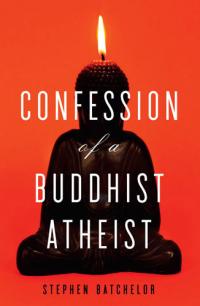 Speaking of models, Copernican revolutions resemble the Buddha’s reorientation of the self. Batchelor retrieves the Buddha from a life-negating, karmically deferred, repetitively reborn immaterial interpretation. “Gotama no more rejected the existence of the self than Copernicus rejected the existence of the earth. Instead, rather than regarding it as a fixed, non-contingent point around which everything else turned, he recognized that each self was a fluid, contingent process just like everything else.” Batchelor insists upon “relinquishing beliefs in an essential self.” He regards the Buddha as a “dissenter, a radical, an iconoclast.”
Speaking of models, Copernican revolutions resemble the Buddha’s reorientation of the self. Batchelor retrieves the Buddha from a life-negating, karmically deferred, repetitively reborn immaterial interpretation. “Gotama no more rejected the existence of the self than Copernicus rejected the existence of the earth. Instead, rather than regarding it as a fixed, non-contingent point around which everything else turned, he recognized that each self was a fluid, contingent process just like everything else.” Batchelor insists upon “relinquishing beliefs in an essential self.” He regards the Buddha as a “dissenter, a radical, an iconoclast.”
He separates the Buddha’s discourses from “the dead matter inherited from the Indian ascetic tradition.” Batchelor “rejects world-renouncing norms.” He faces hard truths. “To steady one’s gaze on the finitude, contingency, and anguish of one’s existence is not easy. It requires mindfulness and concentration.” In this fortitude, one gains the knowledge that suffering permeates existence, and that we lack control over most of what will befall us. Instead of fatalism, Batchelor aims to fully engage the mind with this human predicament, “be it the song of a lark or the scream of a child, the bubbling of a playful idea of a twinge in the lower back.” He offers no platitudes. “You notice things come, you notice things go.” This sensibility begins, with meditation, to widen to permeate one’s whole outlook, to sober and direct one’s self.
He rouses his rationalist readers. “The strongest argument against gods, spirits, and tantric divination is found in the existence of the electricity grid, brain surgery, and the Declaration of Human Rights.” Batchelor finds the appeal of Buddhism not within its explanations of reality, but in its methodology, its practical confrontation with the nature of suffering. This study’s level may be too slightly too advanced for beginners. First, Michael Carrithers’ “The Buddha” and Damian Keown’s “Buddhism” entries in the Oxford University Press’ “Very Short Introduction” series, and then Batchelor’s “Buddhism Without Beliefs,” will serve as compatible prerequisites for secular seekers.
Within familiar tales, Batchelor bolsters his skepticism. Near the Buddha’s death, he told his disciple Ananda: “you should live as islands to yourselves, being your own refuge, with the Dhamma as an island, with the Dhamma as your refuge, with no other refuge.” Not even the Buddha or the Sangha (the community) can help; ultimately, free of God or gods, salvation or rebirth, liberation or an afterlife, Batchelor asserts that an honest Buddhist must realize: “You are on your own.”
With such an exclusion of the supernatural, can wonder survive? Compassion, Batchelor avers, comes out of a suffering faced and embraced. Neither morbid nor despairing, it calms one’s depths. Certitudes recede, and confidence emerges. “I will never see what Gotama saw,” he tells us from his pilgrimage to the Buddha’s homeland, “but I can listen to the descendants of the same cicadas he would have heard when night fell in Kusinara all those years ago.”
This rambling yet incisive study displays Batchelor’s manner of writing: a “jackdaw” assemblage of “ideas, phrases, images, and vignettes.” He compares this construction to the Buddha’s parable of a raft one makes to get across a river, only then to leave it behind for another crosser as one goes on one’s way. The raft does not stay on the walker’s back, nor is it enshrined as a relic. The Buddha’s method of Dharma practice, Batchelor reasons, resembles making a collage. Meditational styles, philosophical nuggets, ethical values, insights all get bound together as a function, a tool, a vehicle. The raft helps us navigate life’s river. “That is all that matters. It need not correspond to anyone else’s idea of what ‘Buddhism’ is or should be.”
“If ‘secular religion’ were not considered a contradiction in terms, I would happily endorse such a concept.” He concludes: “And if in the end there does turn out to be a heaven or nirvana somewhere else, I can see no better way to prepare for it.” In this slightly playful, gently ironic manner, Batchelor closes a rewarding, challenging journey down his life’s path.
Click here to read the beginning of this article
Source: popmatters.com




